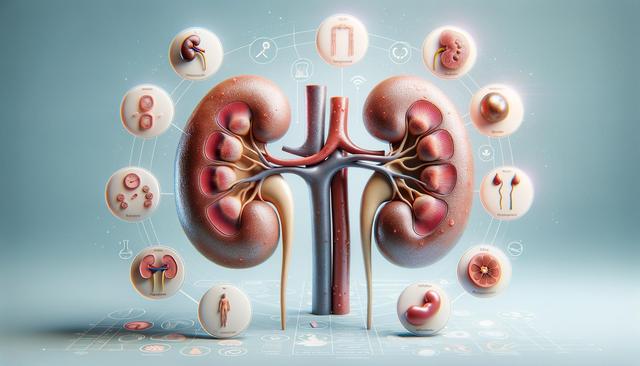Understanding Kidney Disease and Its Impact
Kidney disease, a condition that affects the organs responsible for filtering waste from the blood, can have profound impacts on an individual’s health. When kidneys are not functioning properly, waste products and excess fluids can build up in the body, leading to a range of health issues. Understanding the role of kidneys helps to appreciate why dietary management is essential for those with kidney disease. By maintaining a proper diet, individuals can help manage symptoms and slow the progression of kidney damage. It’s important to work closely with healthcare providers to tailor a diet that meets individual health needs while considering any underlying conditions.
Foods to Include in the Diet
For individuals with kidney disease, incorporating specific foods into their diet can be beneficial. These should be rich in nutrients while being easy on the kidneys. Here are some recommended food choices:
- Fruits: Apples, berries, and cherries are low in potassium, making them excellent choices.
- Vegetables: Cauliflower, cabbage, and bell peppers are kidney-friendly due to their lower potassium content.
- Proteins: Consider lean proteins such as chicken, fish, and egg whites, which are easier for the kidneys to process.
- Grains: White rice and pasta are low-phosphorus options that can be included in meals.
Hydration is also important, but intake should be monitored to avoid fluid overload, especially in advanced stages of kidney disease.
Foods to Avoid with Kidney Disease
Just as important as knowing what to eat is understanding which foods to limit or avoid. Certain foods can exacerbate kidney problems or complicate management efforts. Key foods to avoid include:
- High-potassium foods: Bananas, oranges, and potatoes can increase potassium levels, which can be harmful if kidneys are not filtering properly.
- High-phosphorus foods: Dairy products, nuts, and beans are rich in phosphorus, potentially leading to bone and heart issues in those with kidney disease.
- Processed foods: These often contain high levels of sodium and preservatives that can strain the kidneys.
- Red meat: It is potentially high in protein and should be limited to avoid excess strain on the kidneys.
Reducing these foods in the diet can help maintain better kidney function and overall health.
Creating a Balanced Meal Plan
Creating a balanced meal plan tailored to the needs of kidney disease patients is an effective way to manage nutrition. This involves planning meals that incorporate a variety of the recommended foods while avoiding those that are harmful. Here are some tips for a balanced meal plan:
- Work with a dietitian: A registered dietitian can provide personalized advice and meal planning assistance.
- Monitor portion sizes: Keeping portions in check can help manage nutrient intake without overloading the kidneys.
- Stay flexible: Be open to adjusting meals based on how the body responds to certain foods.
- Experiment with herbs and spices: These can enhance flavor without the need for excess salt.
By focusing on balanced meals, individuals can support their kidney health while enjoying a varied diet.
Monitoring and Adjusting Your Diet
As kidney disease progresses, dietary needs may change, making regular monitoring and adjustments necessary. This requires consistent communication with healthcare providers to assess kidney function and dietary effectiveness. Key strategies for monitoring include:
- Regular blood tests: These can provide insights into how well the kidneys are functioning and whether adjustments are needed.
- Keep a food diary: Tracking foods consumed can help identify patterns that might affect kidney health.
- Listen to your body: Be mindful of how different foods affect your energy levels and overall well-being.
Adjusting the diet based on these insights can help in managing kidney disease more effectively.
Conclusion
In conclusion, dietary management is a cornerstone of living well with kidney disease. By understanding which foods to include and avoid, creating balanced meal plans, and staying vigilant in monitoring nutritional needs, individuals can significantly impact their kidney health. Collaborating with healthcare providers and dietitians to tailor a personalized dietary strategy will empower those with kidney disease to maintain a better quality of life while effectively managing their condition.
